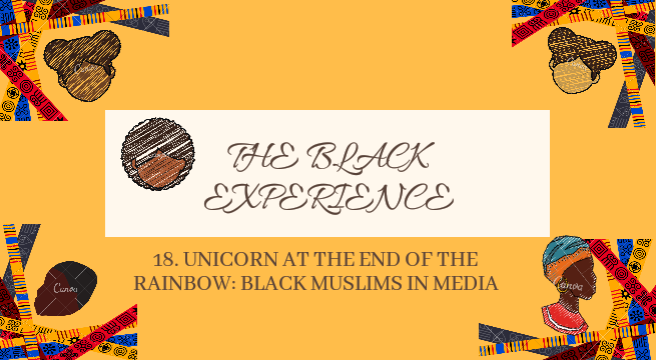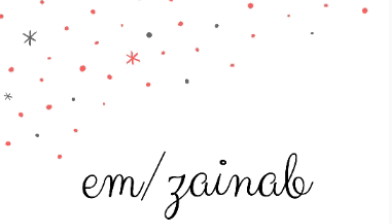
Hello, everyone!
Welcome to The Black Experience, a month long blog series through February, in honour of Black History Month, which features Black bloggers, booktubers and authors. This project aims at highlighting Black stories and experiences both in real life and in publishing, as well as showing our individual and collective struggles.
In today’s post, I talk about a topic that’s really important to me. I talk about the representation —or lack of — of a sizeable demographic in media. Today will be about the lack of authentic Black Muslims representation.
A good portion of the world’s Muslim population of the world is Black, yet we don’t even have 50 (i know i’m pushing that number) books with Black Muslim characters.
Since I can remember I’ve loved books and reading. I can’t say when I started reading, but my earliest memories still have connections to books. In all my years of reading, with the exception of some books published in Nigeria, I have read only two books with a Black Muslim main characters. I admit my diverse reading is poor, for years I’ve been reading allonormative cis-heteronormative white mostly abled Christian characters, but that shouldn’t mean that when I think of books with Black Muslim main characters I should find it hard to come up with something meaningful, especially with all the exposure I’ve gained since joining book twitter 3 years ago. Even right now, off the top my head, I can’t comfortably name ten books with Black Muslim Characters and I find pretty distressing that I can’t name characters like me.
In the past few years, while I can’t truly call the effort sincere because of all that’s happened lately, there as been an increase, albeit small, in marginalised identities in books. A little more Black main characters (even though most of these books are about our pains rather than us people like the next person), more characters of colour, more queer characters, and an even smaller increase in numbers with Muslim characters. We’ve even had some intersectionals between these identities; queer Black people, Brown Muslims, queer Brown Muslims, but for some reason there has been so little Black Muslim main characters in traditional publishing, that’s its nearly nonexistent, lets not even push queer Black Muslims.
Black Muslims deserve to see ourselves represented in media, and we deserve genuine representation, not to have our identities slapped on random characters in a bid to look progressive.
Being a Black Muslim is different from other Muslim experiences, because ours is an intersectionality that is often forgotten. The Black Muslim experience is so different because we face different struggles and erasure, which this post is also about. And like the other Muslims we are no monolith, we have such diverse experiences. The West African Muslim experience is not the Black North African experience and neither is it the same experience as African American Muslim’s.
Another thing that strikes me is the diminutive number of Black Muslim authors traditionally published. A huge chunk of Black Muslims published are either self published or indie. Traditional publishing? She doesn’t know Black Muslims. Its awful seeing that the same way we aren’t given the opportunity to take up space in books, we also don’t get that in real life either, and it hurts.
Our stories have so much potential. We as individuals have so much to bring to the table. I just wish the industry will realise that.


Wow. This is really well written. Great post!
LikeLiked by 1 person
thank you 💗
LikeLiked by 1 person